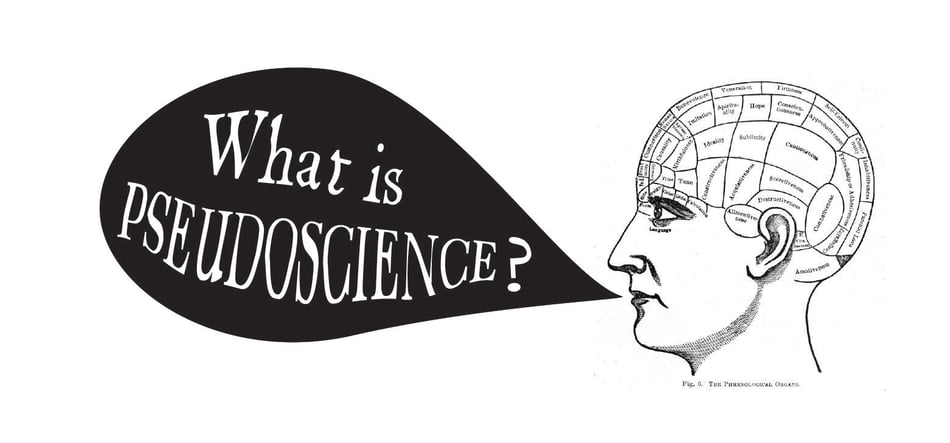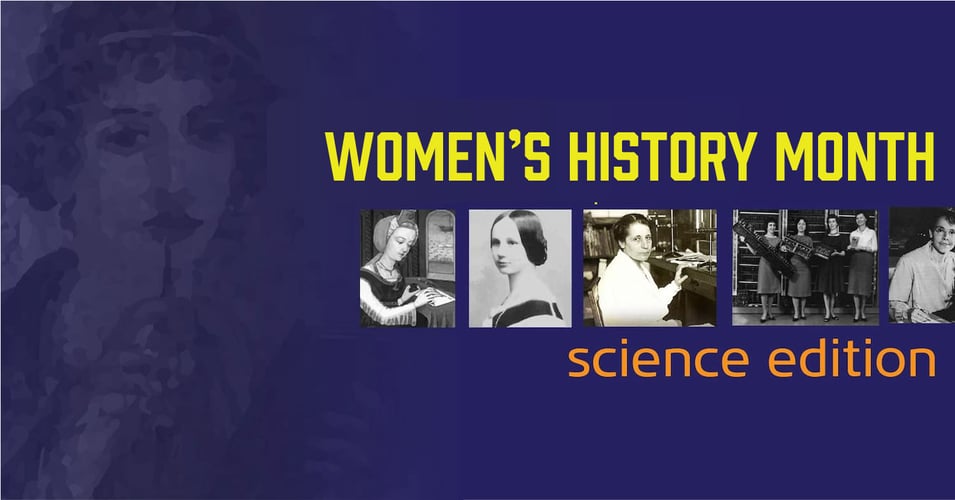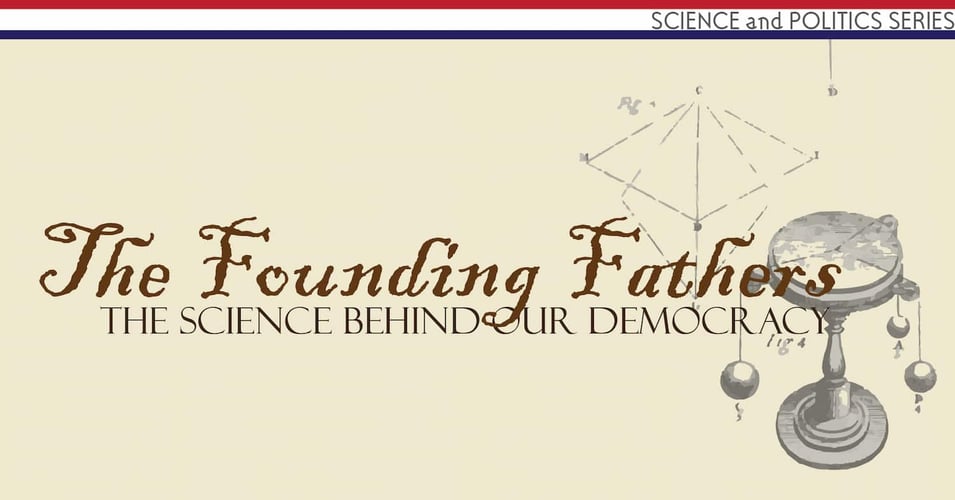
On the shelf of human knowledge, next to "junk science" and "conspiracy theories," lives the concept of pseudoscience, a broad category of claims that purport to be scientific but are actually not grounded in data or experimentation. Into this category fall long-disavowed topics such as phrenology and hollow Earth theory, but also practices and beliefs that still have their ardent followers, including spiritualism, astrology, reflexology, and numerology. Ideologically-grounded topics can sometimes be considered pseudoscience by some, but adamantly defended as real science by others, including creationism, climate change denial, and vaccine hesitancy. So how does someone determine what makes a claim real science or pseudoscience? In today's post, we will look at the key differentiators that help scientists, and the general public, make this determination.
First, let's define pseudoscience: A collection of statements, claims, or practices that are presented as if based on science, but that do not stand up to the rigors of the scientific method. This term was coined by science philosopher Karl Popper, whose life's work focused on explaining the difference between real science and what just sounds like science. Let's explore by looking at some key differentiators.
| Science | Pseudoscience | Why This Matters |
|---|---|---|
| Predicts |
Retrodicts
Explains after the fact
|
Predictions have the potential to expose errors in theories because the scientist has no control over what will happen. Explanations after the fact can make assertions that favor the theory - they control what reason they pick. |
|
Falsifies
Potentially disprovable under certain conditions
|
Confirms | Theories must be falsifiable under certain conditions to be considered valid. A theory that is never, ever wrong is too subjective to be reliable. For example, you can disprove the theory that "all swans are white" by finding one black swan. You can't disprove the theory that an invisible, undetectable fairy makes flowers bloom. You can't say something is true because you can't prove it is not true. |
| Tests | Asserts (States) | Testing theories opens the scientist up to the possibility of being wrong, an essential requirement to make good science. Assertions are subject to the person making the statement and can be unfounded. |
| Revises |
Defends
often rigidly
|
A scientist who makes predictions that sometimes fail to come true, who falsifies theories and conducts rigorous tests is comfortable with and welcomes the opportunity to refine and revise conclusions. Rigidly defending a theory despite contradictory data holds real science back. |
| Transparent | Opaque | Scientists publish their methods, data, and results so that other scientists can reproduce, analyze, and even critique their work. When methods and results are vague or even hidden, no one can verify that what is being asserted is accurate. |
| Reproducible | Anecdotal | When results can be reproduced consistently, a theory gains reliability. The results are predictable and objective. When results are limited to one person's experience, they remain unpredictable and not transferrable to other people or situations. |
| Objective | Biased | Science must be objective, not depending on the person conducting the experiment, cultural beliefs or political pressures. There can be no reliable science when the research is influenced by external factors who want to see a certain result. |
| Systematic | Ad hoc | Research tries to anticipate confounders that may influence results, leaving room for the possibility of further confounders to be addressed in further study. A theory is unreliable if it requires frequent, unsupported adjustments to explain deviations. |
|
Skeptical
Self-Correcting
Tentative
|
Dogmatic
Immutable
Certain
|
A scientist must be skeptical - skeptical of results, of study design, of data. They must always seek more and better evidence of others, and be willing to provide it for their own work as well. Adopting a narrow, unquestioning and rigid acceptance of data stunts scientific discovery. |
| Peer-reviewed | Unchallenged | Scientific journals publish work only after it has been reviewed and critiqued by experts in the field. Work that has not had to undergo scrutiny by outside experts means it has not gone through any kind of quality control, making it less credible. |
| Quantifiable | Vague | Science needs data, not stories. Quantifying a concept helps ensure objectivity, but it also enable comparisons and empirical analysis. Vague descriptions are subjective and can shift based on interpretation or situation. |
| Evidence-based | Belief-based | It is not enough to make a claim in science, one must be able to back that claim up with data. Theories based on gut feelings, instinct, beliefs or expectations are not reliable. |
| Cumulative | Isolated | Science builds on existing research, adding layers of understanding to what is already known, even when new discoveries are made that disprove existing theories. New results are tethered to a long line of evidence-based discoveries. When a theory is a radical departure from known science, with very few connections to established knowledge, it must have an even larger body of evidence to qualify as credible and reliable. |
| Models reality | Creates a narrative | Science endeavors to explain our natural world, with full knowledge that errors, corrections, and dead ends are a possibility. If the primary goal of a theory is something other than explaining the natural world (pushing an agenda, selling a product, finding a quick answer to a complicated problem), then it is creating a narrative, not discovering a truth. |
Science, and the scientific method, is about getting as close as possible to "truth," but always leaving room for correction, improvement, and discovery. It can be frustrating to seem like scientists never give a "straight answer," especially around issues of health care. We want a clear answer and sometimes all we seem to hear is "it seems as if," or "data seems to indicate that..." when we want a definitive answer. But this is science at its best when it is skeptical and always pushing for more.
What do you do when you confront pseudoscience in your professional or personal life? How do you make sure you are getting the most trustworthy information? Share your thoughts in the comments below!
![EOScu Logo - Dark - Outlined [07182023]-01](https://blog.eoscu.com/hubfs/Eoscu_June2024/Images/EOScu%20Logo%20-%20Dark%20-%20Outlined%20%5B07182023%5D-01.svg)




